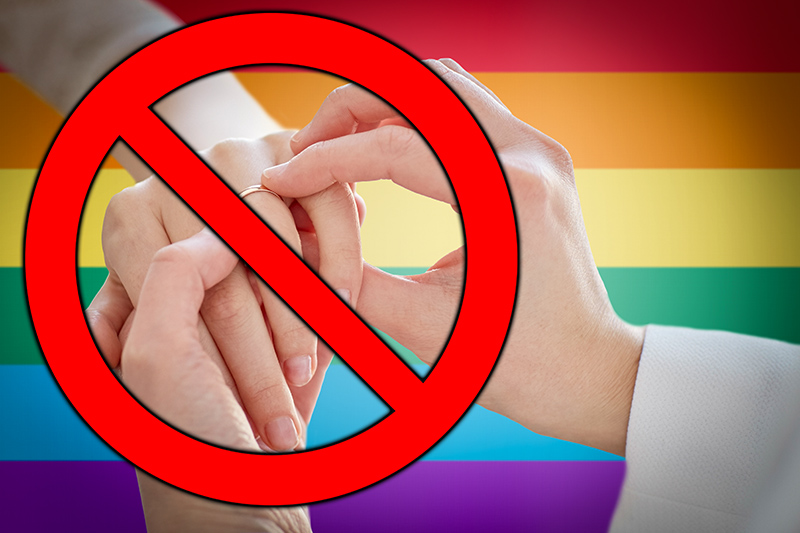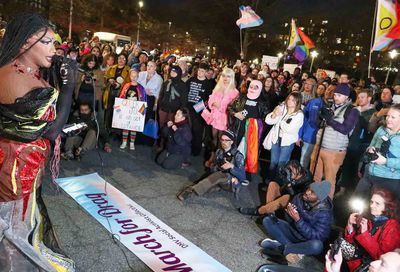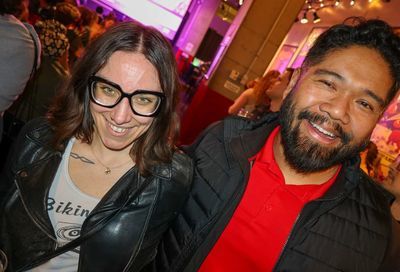The Religious Freedom and Civil Marriage Equality Amendment Act of 2009 passed its first reading during a City Council legislative meeting Tuesday morning, Dec. 1, with the majority of the Council supporting the measure, 11-2.
“Consider all that we have done … in terms of human dignity and equality and fairness, that this Council has taken a leadership role on,” said Councilmember Jim Graham (D-Ward 1), who is gay, reflecting on his 11 years on the Council. “Today we take the rightful position … in taking the next step in terms of declaring marriage equality in this city.”
While Councilmember Marion Barry (D-Ward 8) said he has been an unparalleled ally of the District’s LGBT community over the years, he said he could not vote in favor of the bill, which was introduced by the Council’s other gay member, David Catania (I-At Large)
“Understand that I have not lost my way,” Barry said. “It’s not fair to make this one issue a litmus test as to one’s commitment to human rights, to justice. I resent those who would make it a litmus test. That’s unfair.”
Barry called marriage “the most sacred act in the Christian religion, a covenant between two individuals and their God … and the state.”
Councilmember Yvette M. Alexander (D-Ward 7) was the only other member to vote against the bill.
During the meeting, Catania remarked, “It’s a day I never thought I would see, and never thought I would have the privilege to participate in as a gay person.”
Councilmember Phil Mendelson (D-At Large) opened his remarks with a reminder that the Committee on Public Safety and the Judiciary listened to approximately 17 hours of testimony from 219 people, the majority of whom testified in support of the bill.
Mendelson also discussed the Catholic Archdiocese of Washington’s request to be exempt from recognizing same-sex marriages, and a threat by Catholic Charities to stop offering social services in the District if legally bound to recognize such marriages.
In looking at the other states that have legalized marriage equality, Mendelson said, “There’s no state that’s recognized same-sex marriages that then has also put into the law that that marriage being recognized as solemnized is no longer recognized or may be opted out by others.”
“Marriage is not just about two individuals who want to be able to marry,” he added. “It requires that every third party will recognize that couple as being married. And so the exemptions are a very troublesome slope to tread upon because it undoes what we’re trying to do here, which is to establish equality in the law and to say that people regardless of sexual orientation can be married.”
If the bill passes a second vote by the Council, no sooner than 13 days after the first vote, it then goes to Mayor Adrian Fenty, who is expected to sign it. Afterward, the legislation would be subject to 30 legislative days of congressional oversight.


















